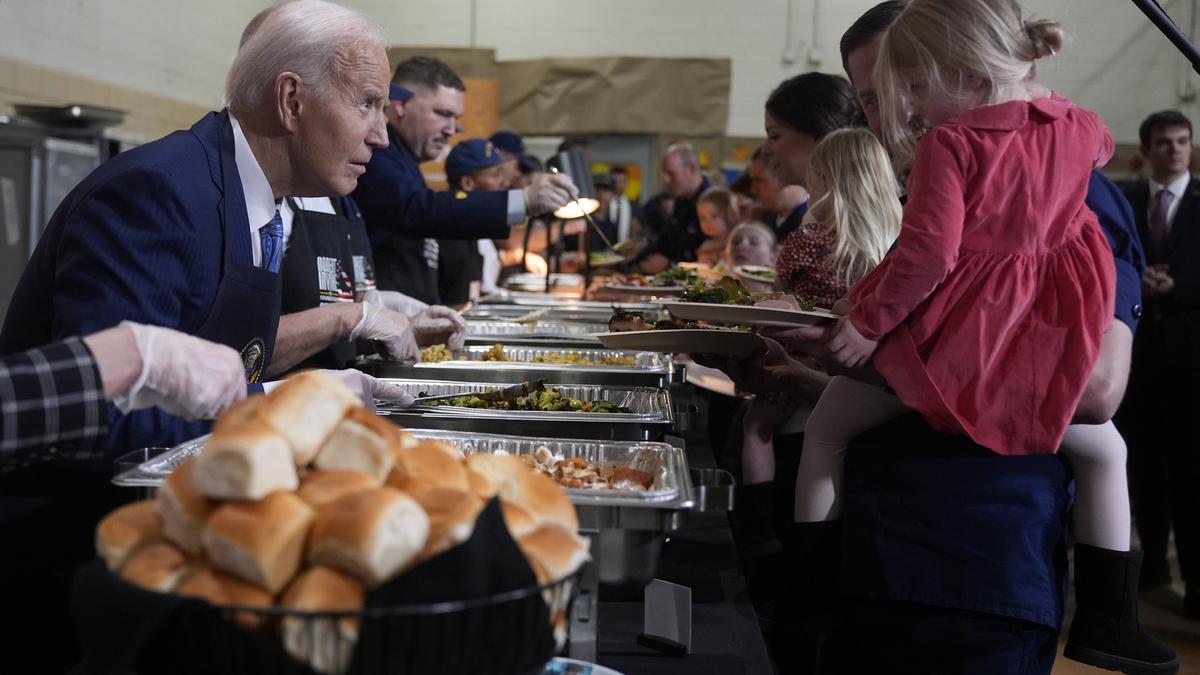
Biden pardons turkeys during final Thanksgiving event, serves dinner in Staten Island
The Hindu
President Joe Biden pardons turkeys Peach and Blossom, marking the start of his last holiday season at the White House.
U .S. President Joe Biden pardoned Peach and Blossom, two white-plumed turkeys, on Monday (November 25, 2024), sparing them from Thanksgiving dinner tables, an annual tradition that also marked the start of the Democrat's last holiday season at the White House.
This year's turkeys are named after the Delaware state flower, the peach blossom, which symbolizes resilience, Mr. Biden, who has two homes in the state, told a crowd of around 2,500 people on the White House South Lawn as one of the turkeys gobbled in the background.
"This event marks the official start of the holiday season here in Washington. It's also my last time to speak here as your president during this season and give thanks and gratitude. So let me say to you - it's been the honor of my life, I am forever thankful," Mr. Biden said.
Peach weighs 41 pounds (19 kg) and loves to eat hot dish and tater tots and his dream is to see the Northern Lights, while Blossom weighs 40 pounds (18 kg) and loves to eat cheese curds and watch boxing, Mr. Biden quipped.
The true start of what has evolved into the current tradition of turkey pardoning dates back to the Harry Truman presidency in 1947. The official tradition began in 1989 at the White House, when then-President George H.W. Bush offered the first official presidential pardon.
Millions of turkeys will be roasted in Thanksgiving ovens across the country on Thursday and drenched in gravy, accompanied by a variety of side dishes, including holiday staples like stuffing, potatoes, cranberry sauce and green bean casserole.
Mr. Biden traveled to New York City's Staten Island later on Monday for a "Friendsgiving" event, where he and his wife Jill Biden thanked members of the U.S. Coast Guard and their families for their service to the country.

The 29th edition of the Conference of Parties (COP29), held at Baku in Azerbaijan, is arguably the most important of the United Nations’ climate conferences. It was supposed to conclude on November 22, after nearly 11 days of negotiations and the whole purpose was for the world to take a collective step forward in addressing rising carbon emissions.










